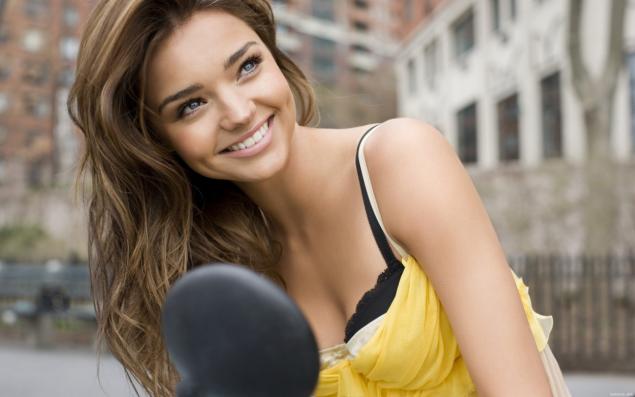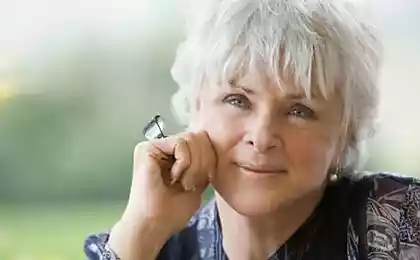512
you would be considered beautiful in another era? The answer will surprise you!
Fatrum invites the reader to figure out who and why driving us crazy. Dawn French, British TV presenter and comedy aktirisu curvaceous unlikely someone would have called "sex symbol", but maybe she was just born at the wrong time? "If I lived in the time of Rubens, I would be incredibly beautiful model - one day she noticed - and Kate Moss would be a maximum of brush»
.
French, of course, said it as a joke, but the interesting question lies in her words. Are standards of beauty vary depending on age? Alternatively, certain features of appearance were considered and are considered excellent at all times and in all cultures?
There are evolutionary arguments in favor of "timeless beauty". For example, some biological features indicate health, strength, and human fertility, making him sexually attractive to the opposite sex. However, the more biologists and psychologists are studying the issue, the more inclined to think that biology can not be the basis of the perception of human beauty.
Consider the widespread assertion that people prefer to pronounced symmetrical faces. The scientific explanation is approximately as follows: stress and disease carried by a person in childhood subtly affect the development of the organism, that leads to the "skewed" in facial structure. That is unbalanced facial features may indicate a physical weakness of man and make it less attractive for breeding and producing offspring.
The problem is that most experiments have revealed a preference subjects symmetrical persons had too few participants. When Stefan Van Dongen University of Antwerp gathered all the results of such research within the meta-analysis, he found that the effect of the influence of symmetry almost disappeared. In fact, the symmetry of the face can not say anything about your health. Although previous studies have supposedly proved the existence of such a connection, large experiment in 2014, which was attended by nearly 5,000 teenagers, did not find any evidence of a correlation between individuals fizieskoy symmetry and strength of their respective owners.
Biologists have also suggested that we prefer to persons having expressed "masculine" or "feminine" traits: broad chelyus John Hamm in men, fine lines Miranda Kerr women. Again, the rationale for this idea sounds very scientific: bone structure reflects the amount of sex hormones in the body, and this is going to "advertise" the fertility and sexual health with the help of his appearance
.
However, most studies proving this, considering only the western type of persons. Isabelle Scott of the University of Brunel, took for his experiment, a sample of all races and types of appearance: Asian, African, Eastern European, South American ... As a result, researchers have found many preferences. For example, residents of urban areas prefer "masculine" men and "feminine" women, and in the more remote regions of the focus shifted to the opposite side and "feminine" men receive more attention, as well as a woman with a "male" Type persons.
The same is true of the body shape. In the West, prefer, for example, long-legged women, but in Namibia completely opposite tastes. Even Western sympathy seems to be transformed over time, such as Botticelli Venus - one of the Western ideals of beauty - pretty kortkonogaya compared to current standards. Although the figures of the "hourglass" for women and broad-shouldered man admired in most countries, the preferred degree of severity depends on the tastes of a particular society.
Perhaps nature is not endowed people no flavor to the exterior as well as our choice of partner should be flexible and depend on the current situation. "For example, in cultures where hunger occurs frequently, most of sympathy on the side of a heavy people, because they are resistant to food shortages, - says Anthony Little of Stirling University - This seems to be the thing. If any nation has a higher risk of developing a particular disease, the symptoms are not the propensity to this illness, encrypted, for example, the symmetry of the face, make a man "beautiful" other. Men with square chin - a sign of high testosterone - are appreciated by women in cases where the representatives of the male must compete with each other, that is, when men more than women, and so on »
. Thus, although our concepts of beauty may seem to us something immutable and objective, rather, they merely a consequence of circumstances. It is also worth noting the presence of the corresponding effect: if you hear or see that a certain type of appearance attracts the majority of the representatives of your floor, you will also find these features attractive. That is the taste of individuals affect the taste of the whole population, thereby reducing the time to choose: you do not have your own to explore all existing types of appearance, to form an opinion on each of them and bring your own preferences. Thus, social media can shape the tastes of the whole nation.
Consider a recent experiment Business School in Baltimore. The researchers used the dating site that allows you to put a random evaluation people. After the subjects put their assessment, they showed an average score of reviews of other visitors. Although the experiment had no conditions of "correctness" of someone else's opinion, people know what type of appearance was popular, started involuntarily shift the focus of their own preferences to the holders of such traits persons. Their taste has changed (and unbeknownst to them) - only using a single Web site
. We conclude that the universal concept of beauty does not exist: we are subject to the opinion of environment, the influence of the media, even the choice of the partners of our friends is important for us. In view of the beauty of fashion influences, but the opposite is true: we can shape the fashion of a certain type of beauty, it is enough to make an effort to ensure that this type met all on television, on billboards and in glossy magazines as often as possible
<. br> via www.bbc.com/future/story/20150622-the-myth-of-universal-beauty
.

French, of course, said it as a joke, but the interesting question lies in her words. Are standards of beauty vary depending on age? Alternatively, certain features of appearance were considered and are considered excellent at all times and in all cultures?
There are evolutionary arguments in favor of "timeless beauty". For example, some biological features indicate health, strength, and human fertility, making him sexually attractive to the opposite sex. However, the more biologists and psychologists are studying the issue, the more inclined to think that biology can not be the basis of the perception of human beauty.
Consider the widespread assertion that people prefer to pronounced symmetrical faces. The scientific explanation is approximately as follows: stress and disease carried by a person in childhood subtly affect the development of the organism, that leads to the "skewed" in facial structure. That is unbalanced facial features may indicate a physical weakness of man and make it less attractive for breeding and producing offspring.
The problem is that most experiments have revealed a preference subjects symmetrical persons had too few participants. When Stefan Van Dongen University of Antwerp gathered all the results of such research within the meta-analysis, he found that the effect of the influence of symmetry almost disappeared. In fact, the symmetry of the face can not say anything about your health. Although previous studies have supposedly proved the existence of such a connection, large experiment in 2014, which was attended by nearly 5,000 teenagers, did not find any evidence of a correlation between individuals fizieskoy symmetry and strength of their respective owners.
Biologists have also suggested that we prefer to persons having expressed "masculine" or "feminine" traits: broad chelyus John Hamm in men, fine lines Miranda Kerr women. Again, the rationale for this idea sounds very scientific: bone structure reflects the amount of sex hormones in the body, and this is going to "advertise" the fertility and sexual health with the help of his appearance
.

However, most studies proving this, considering only the western type of persons. Isabelle Scott of the University of Brunel, took for his experiment, a sample of all races and types of appearance: Asian, African, Eastern European, South American ... As a result, researchers have found many preferences. For example, residents of urban areas prefer "masculine" men and "feminine" women, and in the more remote regions of the focus shifted to the opposite side and "feminine" men receive more attention, as well as a woman with a "male" Type persons.
The same is true of the body shape. In the West, prefer, for example, long-legged women, but in Namibia completely opposite tastes. Even Western sympathy seems to be transformed over time, such as Botticelli Venus - one of the Western ideals of beauty - pretty kortkonogaya compared to current standards. Although the figures of the "hourglass" for women and broad-shouldered man admired in most countries, the preferred degree of severity depends on the tastes of a particular society.
Perhaps nature is not endowed people no flavor to the exterior as well as our choice of partner should be flexible and depend on the current situation. "For example, in cultures where hunger occurs frequently, most of sympathy on the side of a heavy people, because they are resistant to food shortages, - says Anthony Little of Stirling University - This seems to be the thing. If any nation has a higher risk of developing a particular disease, the symptoms are not the propensity to this illness, encrypted, for example, the symmetry of the face, make a man "beautiful" other. Men with square chin - a sign of high testosterone - are appreciated by women in cases where the representatives of the male must compete with each other, that is, when men more than women, and so on »
. Thus, although our concepts of beauty may seem to us something immutable and objective, rather, they merely a consequence of circumstances. It is also worth noting the presence of the corresponding effect: if you hear or see that a certain type of appearance attracts the majority of the representatives of your floor, you will also find these features attractive. That is the taste of individuals affect the taste of the whole population, thereby reducing the time to choose: you do not have your own to explore all existing types of appearance, to form an opinion on each of them and bring your own preferences. Thus, social media can shape the tastes of the whole nation.
Consider a recent experiment Business School in Baltimore. The researchers used the dating site that allows you to put a random evaluation people. After the subjects put their assessment, they showed an average score of reviews of other visitors. Although the experiment had no conditions of "correctness" of someone else's opinion, people know what type of appearance was popular, started involuntarily shift the focus of their own preferences to the holders of such traits persons. Their taste has changed (and unbeknownst to them) - only using a single Web site
. We conclude that the universal concept of beauty does not exist: we are subject to the opinion of environment, the influence of the media, even the choice of the partners of our friends is important for us. In view of the beauty of fashion influences, but the opposite is true: we can shape the fashion of a certain type of beauty, it is enough to make an effort to ensure that this type met all on television, on billboards and in glossy magazines as often as possible
<. br> via www.bbc.com/future/story/20150622-the-myth-of-universal-beauty
























